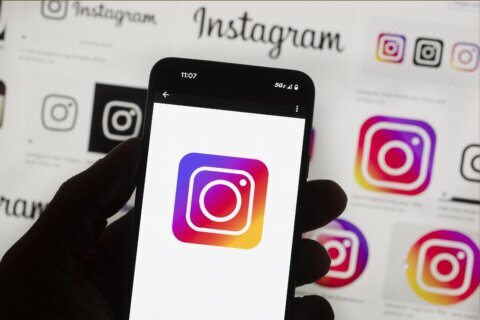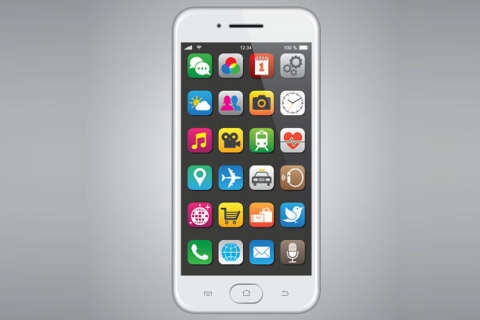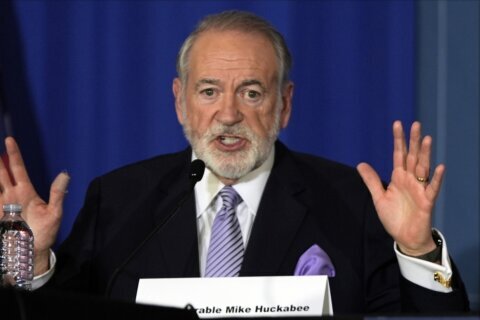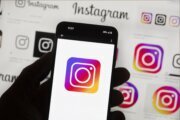Threads, the simple, bare-bones text-based social network created by Facebook owner Meta, burst onto the scene during a particularly bad week for the rival then still known as Twitter. It quickly amassed 100 million signups — a huge feat for a newcomer in the space — and was dubbed as a “Twitter killer.”
By week two, though, signups began to drop off. As of Aug. 7, the number of people who used Threads daily hovered around 10 million on Android phones, down from 49 million when it launched a month earlier, according to research firm SimilarWeb. Is Mark Zuckerberg’s latest venture just a flash in the pan? That depends on whether it can hold its own against its biggest rival. And no, that’s not X, the former Twitter. It’s TikTok. And the odds are not great.
“Mark Zuckerberg may have temporarily been distracted in his sparring with Elon Musk, but the real battle for Meta is with TikTok,” said Insider Intelligence analyst Jasmine Enberg. “And Zuckerberg still really needs to watch his back.”
It’s true that before TikTok took over the role of digital town square and “originator of trends,” Enberg noted, the role was held by Twitter. But many of the biggest trends now come from people who came of age in the TikTok era — Gen Z and even younger kids and teens. And just as with stodgy Facebook, Twitter usage is also declining among teens, according to data from the Pew Research Center. As such, text-based social media platform may not be all that appealing to the TikTok generation, where dances, makeup tips, outlandish recipes — not to mention the whole idea of de-influencers — spread via videos rather than the written word.
Regardless of format, though, Threads’ biggest challenge is “being able to find a unique identity outside of being a Twitter alternative and outside of the expansion of Instagram,” Enberg said.
For now, its not clear it has one. The app amassed a massive initial user base, including well known celebrities and brands, precisely because it is an expansion of Instagram. To sign up for Threads, you need an Instagram account, and it’s easy to toggle back and forth between the two. Instagram has well over a billion users (by some estimates closer to 2 billion), and the app has been luring users to Threads with notifications to join their friends there.
The question is, what to do once you’re on? So far, Threads’ user base is similar to that of Instagram, and prominent accounts are predictable — celebrities, politicians, news organizations, influencers and the like. It’s harder to find original posts from regular people, unless your the Instagram connections you ported over happen to be a chatty — or thready — bunch. If you sign up without connecting a well-used Instagram account, by creating one just so you can join Threads, the experience can feel impersonal and sterile as the app steers you to follow big, popular accounts that everyone else follows, too.
While many popular internet celebrities rushed to sign up for Threads and quickly amassed large followings, it’s not clear how many of them are returning regularly. MrBeast, a popular YouTuber whose actual name is Jimmy Donaldson, has 5 million followers on the app. But he has not posted in two weeks — though he has sent several TikToks, tweets (or posts on the site now called X) and a 18-minute video on YouTube, where he has 175 million subscribers.
Zuckerberg, in a recent conference call, said he’s “optimistic” about Threads but acknowledged there’s a “lot of work to do” to make it reach its full potential.
“It has been sort of this weird anomalous thing in the tech industry that there hasn’t been an app for public discussions like this that has reached 1 billion people,” he said. “When I look at all the different social experiences, it just seems like there should be one like this.”
Maybe so, but it’s not clear it’ll be Threads. As Zuckerberg acknowledged during the same call, Meta has tried “a bunch of standalone experiences over time” but in general, it hasn’t had much luck. There’s Facebook, sure. But the company bought both Instagram and WhatsApp, its two other successful apps. The biggest one may be Messenger — but even that started as a service inside Facebook before it was spin out as a separate app.
“(It’s) awesome that we get a chance to work on this, and I’m really optimistic about where we are,” Zuckerberg said. “But it’s going to be a long road ahead.”
Copyright © 2024 The Associated Press. All rights reserved. This material may not be published, broadcast, written or redistributed.







